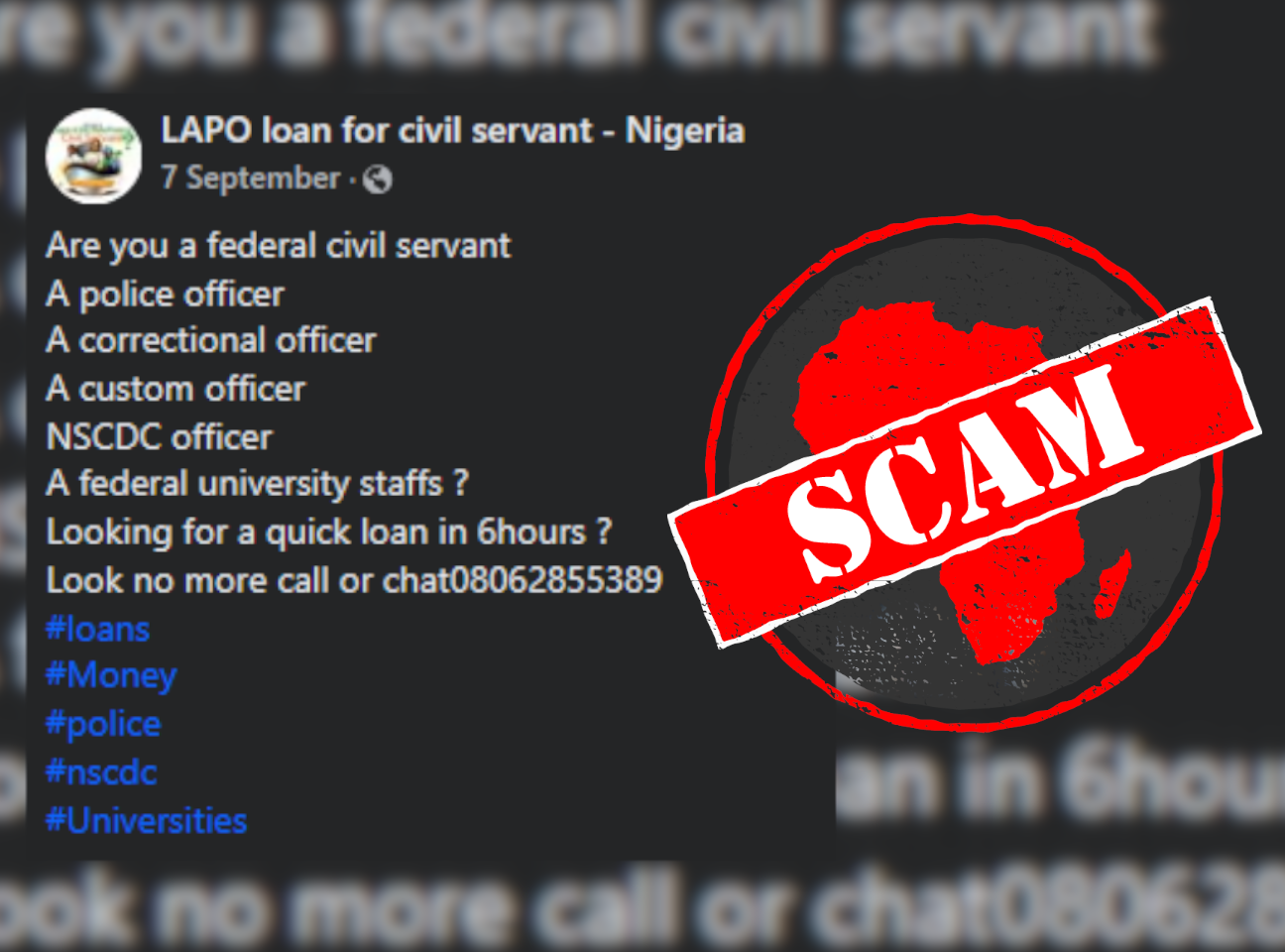IN SHORT: LAPO Microfinance MFB is known for offering loans to Nigerians but beware of fake Facebook pages pretending to be LAPO.
A Facebook page LAPO Loan for Civil Servant Nigeria is calling on civil servants to get a quick loan within six hours.
The page uses the name of the Lift Above Poverty Organization (LAPO) and its offshoot, the LAPO Microfinance Bank. The bank offers a variety of financial products and services to small and medium-sized businesses and is especially known for its lending.
One of the posts on the Facebook page reads: “Are you a federal civil servant, police officer, correctional officer, customs officer, NSCDC officer and federal university staff? Looking for a quick loan in 6 hours? Look no more call or chat 08062855389.”
We found similar pages under the names Lapo Quick Loan, Lapo Microfinance Loan and Lapo Loan. They all post very similar offers, though using different cell phone numbers, including here, here, here, here, here, here, here and here.
But is LAPO offering quick loans, though a variety of Facbook pages? We checked.

LAPO is being impersonated
Facebook accounts that are out to scam users have a common pattern of making errors, asking people to reach out to them via personal contacts and having very followers.
LAPO Microfinance Bank has 136,000 followers on its official verified Facebook page while one of the suspicious pages has only 767 followers.
The institution took to its page in November 2023 to warn people of a scam and advised interested applicants to only use the phone numbers listed on their official page and website.
They also wrote: “LAPO MfB never requests payment before giving out loans!” Asking for a fee to be paid upfront is another characteristic of a Facebook account out to scam you.
Online scammers are impersonating popular brands on Facebook to defraud people and get personal information. Read our guide on how to spot online scams.
Republish our content for free
For publishers: what to do if your post is rated false
A fact-checker has rated your Facebook or Instagram post as “false”, “altered”, “partly false” or “missing context”. This could have serious consequences. What do you do?
Click on our guide for the steps you should follow.
Publishers guideAfrica Check teams up with Facebook
Africa Check is a partner in Meta's third-party fact-checking programme to help stop the spread of false information on social media.
The content we rate as “false” will be downgraded on Facebook and Instagram. This means fewer people will see it.
You can also help identify false information on Facebook. This guide explains how.




Add new comment